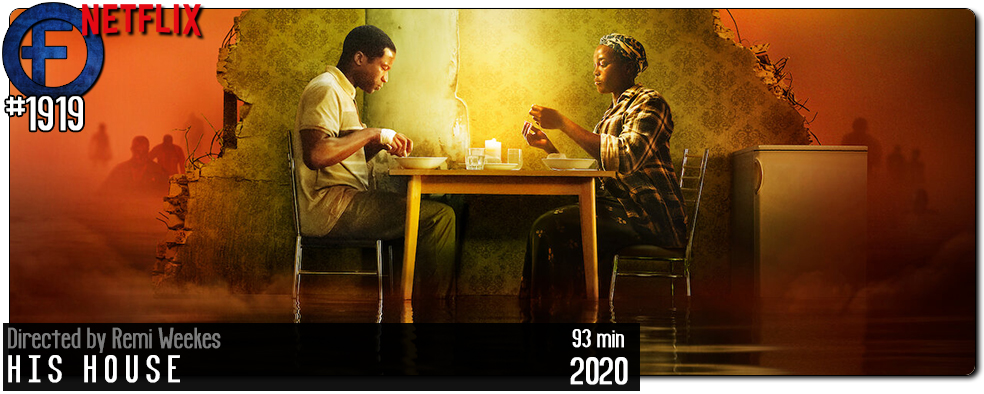Movie Review – His House
Principal Cast : Wummi Mosaku, Sope Dirisu, Matt Smith, Javier Botet, Cornell John, Emily Taaffe, Malaika Abigaba.
Synopsis: A refugee couple makes a harrowing escape from war-torn South Sudan, but then they struggle to adjust to their new life in an English town that has an evil lurking beneath the surface.
********
I’m not sure where Remi Weekes has been hiding all this time, but if his future film career continues on with the strength of his debut feature His House, we’re in for one hell of a ride. Sitting largely unmarketed on Netflix, this British fright-fest is one jarring, creepy horror film, eliciting near-constant skin-prickles throughout and a pervading sense of doom from the moment things start to go bump in the night. While not the flashiest or goriest of films in the genre, His House trades on fear in a most unsuspecting manner for most; the fear of the refugee. Boasting two jaw-dropping lead performances from two virtual unknowns, a thoroughly compelling backstory, as well as legitimately terrifying jump-scares and blanketing creep, His House will have you switching all the lights back on and checking behind the wallpaper before you head off to bed.
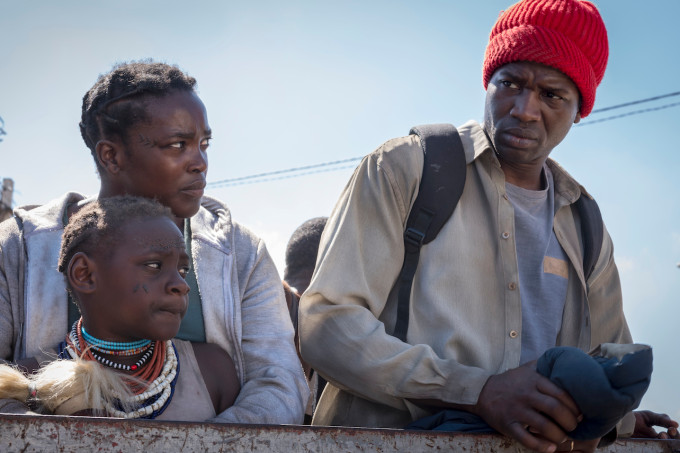
A young Sudanese refugee couple, Bol (Sope Dirisu – The Huntsman: Winter’s War) and Rial (Winmi Mosaku – Batman V Superman: Dawn of Justice) have been released from detention in the United Kingdom, and are placed in a government home on the very outskirts of London. Their caseworker, Mark (Matt Smith), is largely apathetic to the trauma they have suffered, having lost their young daughter Nyagak (Malaika Abigaba) on the boat crossing from France to England, although he is a surprisingly friendly face in a country who tends to marginalise them. As they settle in to their run down flat, the couple begin to experience hallucinations and ghostly apparitions emerging from the sizeable holes in the walls, luring them and tormenting them with visions of the past. Thus begins a terrifying ordeal in the relatively benign suburbs of England, far from the horror of gang warfare in the Sudan, and neither of them may make it out alive.
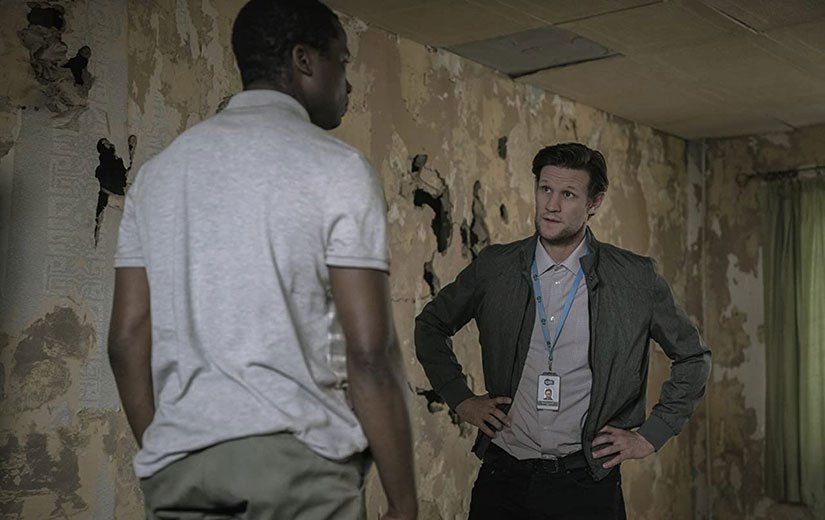
The most prominent form of the modern creepy-horror subgenre is the one in which the hero, or heroes, are isolated from either help or rescue. Whether it’s being stuck in a log cabin in the woods, cut off from the outside world by a gang of ruthless strangers, or having a vacation go horribly wrong whilst out hiking, typically these kinds of films work so well because the ability of the main character to just phone for help or scream loud enough to draw attention is removed, imperilling them against whatever spooky adversary is thrown their way. His House works because it does that exact thing in a different way than normal; by having the central characters as refugees in another country, effectively isolated within themselves, the sense of helplessness and dreadful fear of being exposed and deported, an all too real fear among many for whom refugee status is contingent on a home country’s political climate. His House doesn’t delve into the political aspects of refugees, but rather simply uses this heartbreaking backdrop to manifest the danger our two main characters exist in; the fear of being sent back to Sudan to face possible death. And then it throws ghosts at them.
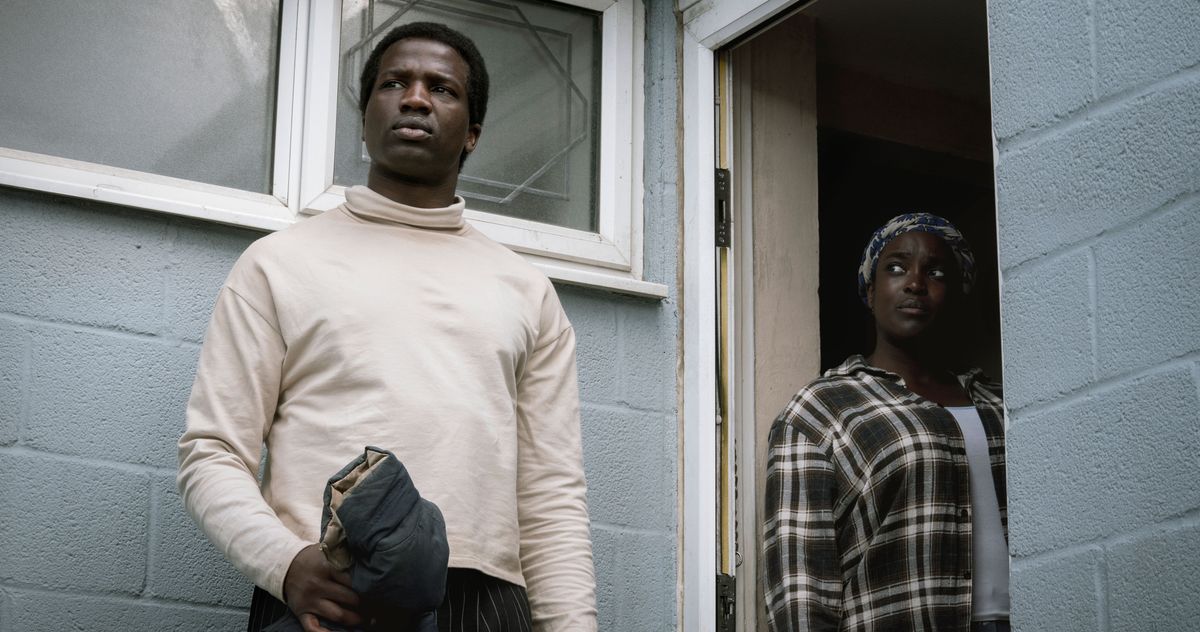
Remi Weekes storms out of the gate strong with his debut feature, coming off some short films and minor television work; directing from his own screenplay, Weekes taps into the pulsating undercurrent of prejudice, xenophobia and being an outsider, being forced to “fit in” to another culture when all you want is to be left alone to live your life, and ratchets up this subtext with ghoulish, sinister moments of abject horror. The story focuses a lot on Bol and Rial’s lost daughter Nyagak, and the evil spirit within their new abode that has followed them from the deadly boat trip and made itself at home alongside them. The poltergeist’s motivations for this particular haunting are sparse to begin with, but a third act plot reveal is simply jaw-dropping and almost turns Bol and Rial from innocent victims into Sophie’s Choice villains. There’s a reason for the ghosts to appear, rather than just to fuck with the audience, and it’s nice for this mystery to reveal itself slowly over the course of the movie.
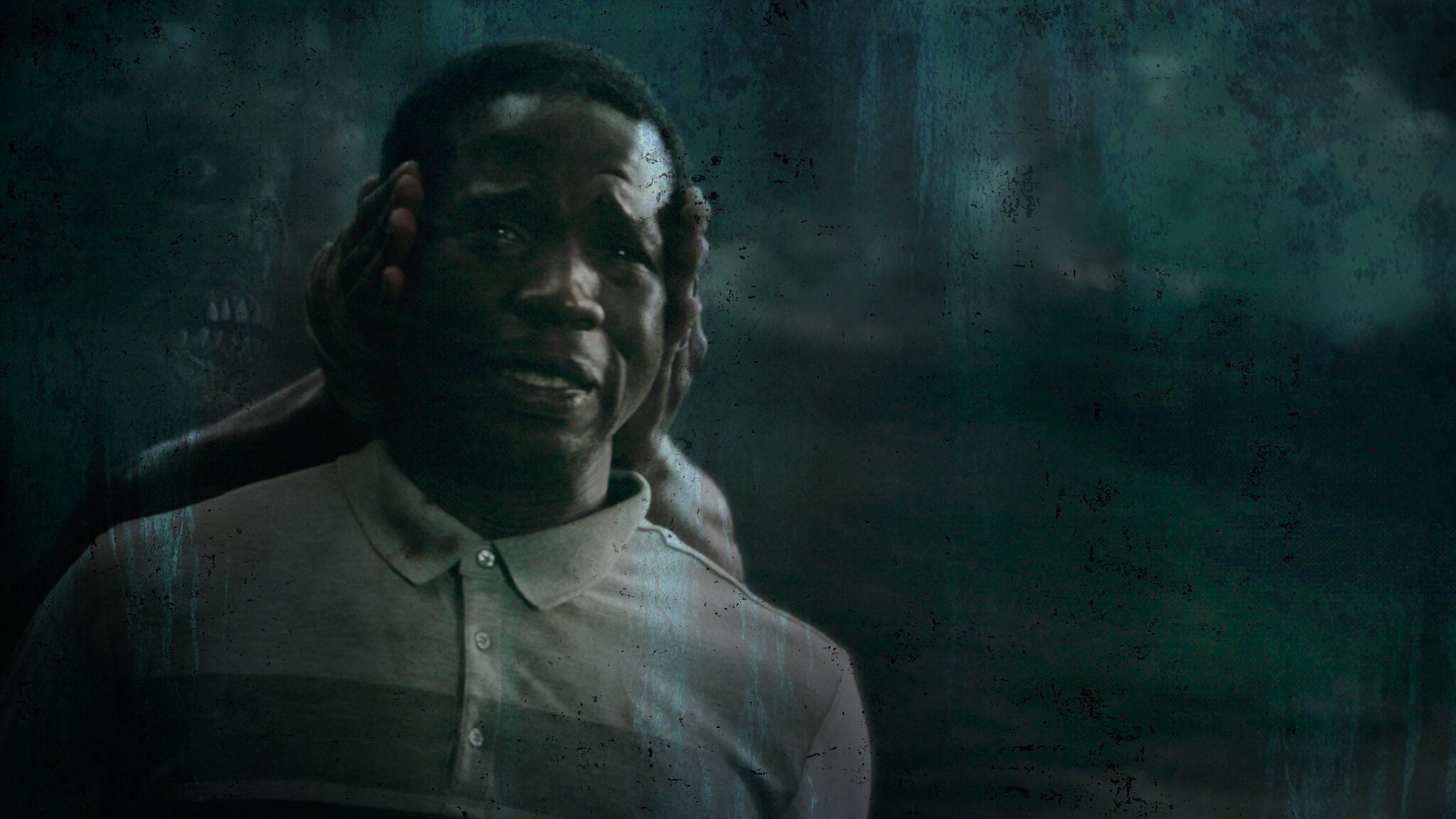
Bol and Rial’s relationship starts out strong, but deteriorates once the bangs and clatters kick in, which happens almost the moment Matt Smith’s hapless caseworker drops them at their front door. There’s an unspoken rift between them that isn’t revealed until later, but it’s obvious they love each other and are strongly, very strongly being torn apart by the unseen ghosts within their walls. It should be noted that the performances of both Wunmi Mosaku, as the grieving mother and wife, and Sope Dirisu, as the hopeful yet tormented husband, are capital-S stellar. It’s a masterclass acting duet performance consisting of high emotional content, along with shattering horror reveals elevating their material only that much more strongly. Props and kudos to both actors for evoking not just typical scream-and-run horror tropes but legitimately moving, affecting lived-in characters with whom most audiences will feel a deep, abiding connection.
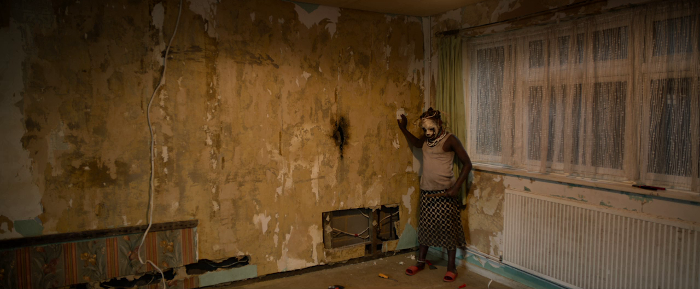
Rather than splashy gore and stupid editorial crash-bang walloping the viewer into a stupor, His House travails the less frequently exercised muscle of good horror by fixating on atmosphere and technical precision. The film’s sound design is one of minimalism, a brooding, creaky flat with dangling wallpaper and water stains on the walls as visually arresting as the surround sound mix is chilling. A lot of the film’s effects were achieved practically, too, which helps sell the rising dread of the couple’s situation. The lighting design and use of the wide aspect ratio has any timid audience member jumping at shadows or twitching at movement in the background, and although there’s an argument that the film overuses its jump-scare quota too quickly, the balance achieved by the emotional catharsis on offer for the characters is enough to keep things on an even keel. The film often exhibits a keen sense of camerawork too, with the frame switching perspectives from within a given room space to peering out from a hole in the wall as if told from the spirit’s viewpoint, and there is no angle that isn’t thoughtfully considered alongside the editorial decisions that propel the story. Weekes has a very, very solid grasp of what makes the best horror films work visually and he absolutely nails it.
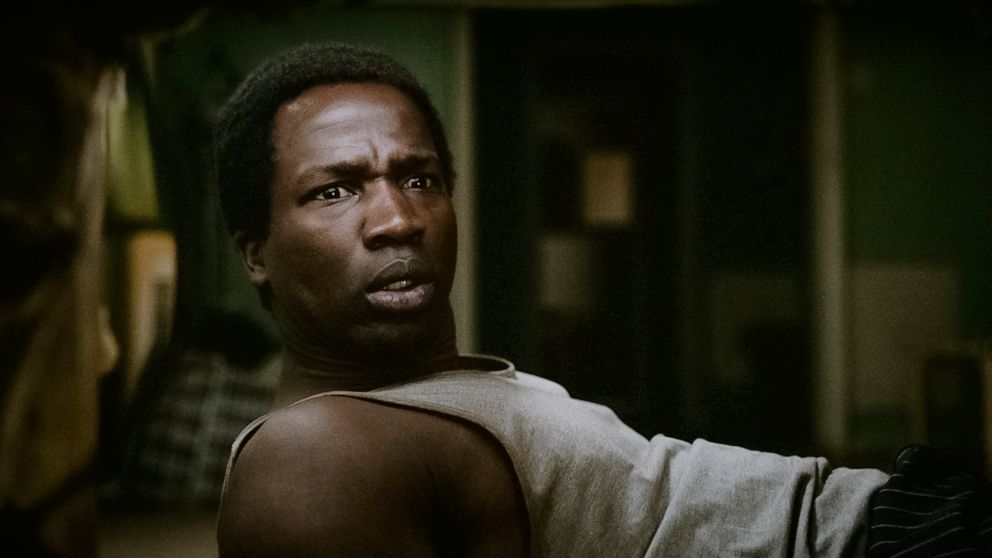
Start to finish, His House gave me chills. I started watching the film with all the lights off, and ended up having to switch them back on about half an hour in because I couldn’t stand the nail-shredding terror Weekes and the story generated. That’s the mark of a successful genre film, if it can affect me in such a way, and boy this film definitely affected me in such a way. Gut-punch story points, sensational career-making performances from Mosaki and Dirisu, and dynamite direction give the film a feeling of incendiary dread, a truly gasping horror aesthetic that delivers shock after shock after shock, without becoming tiresome like so many subgenre entries tend to do. Arguably one of the better horror films I’ve seen in the last five years or so, His House is highly recommended and utterly hypnotic.

